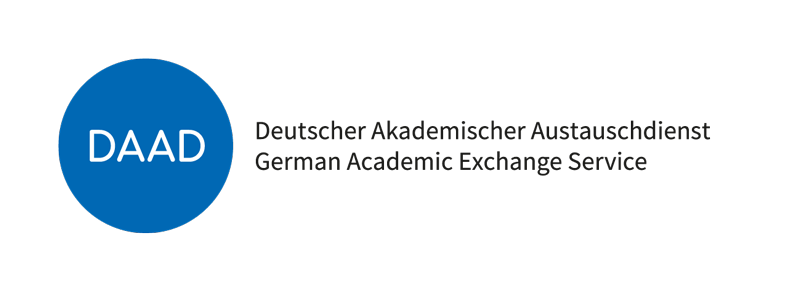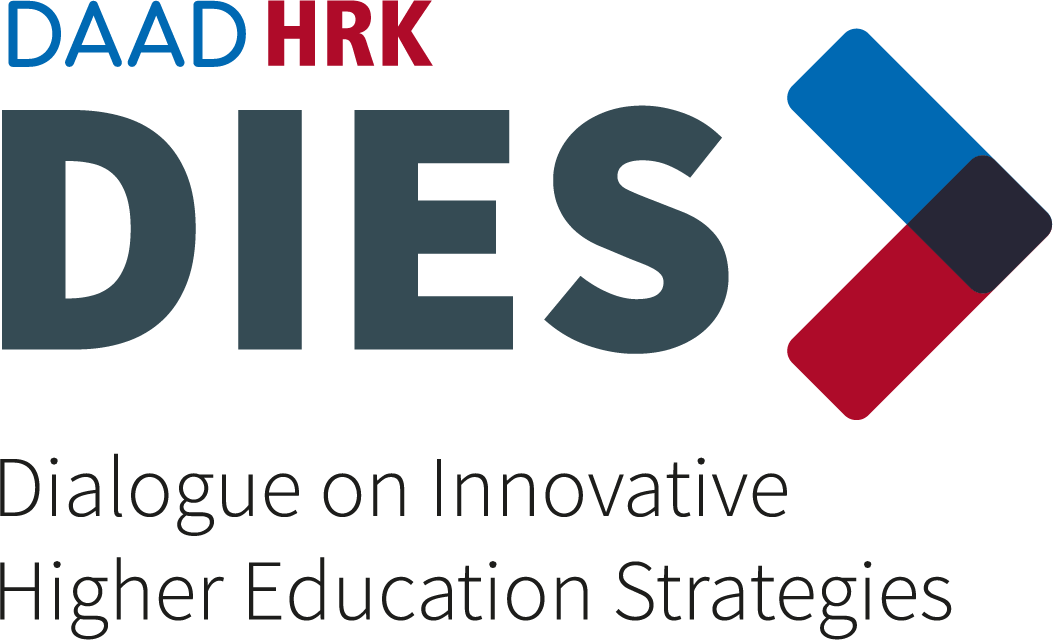“International Students’ Welfare“
Welcome to the second DIES web seminar 2023 in the series “University Leadership in Challenging Times”, organised by the German Academic Exchange Service (DAAD) and the German Rectors’ Conference (HRK).
This international DIES web seminar will focus on the topic of “International Students’ Welfare”.
International students’ welfare is an important aspect of the successful implementation of internationalisation strategies of higher education institutions worldwide. Also for universities in the Global South students’ welfare is becoming an increasingly important dimension of higher education management. In this DIES web seminar, we would therefore like to draw particular attention to the situation in the Global South.
To introduce the topic and as a common ground for later exchange and discussions, Professor Dr Birgit Schreiber, Vice President, International Association of Student Affairs and Services (IASAS) and one of the most well-known experts in this field, will give a keynote address on trends of students’ welfare in the international context.
We will then discuss the opportunities and challenges of International Students Welfare with experts from three different world regions (Africa, Latin America and Southeast Asia). They will share their experiences, perspectives and views on student’s welfare. “What is the added value of international students’ welfare for universities in the context of internationalisation? What are successful strategies for improvement and specific challenges in times of crises? How do the strategies differ in different regions or university types? What are the most relevant aspects/ strategic fields?” are some of the questions we will talk about.
Based on inputs from expert speakers, the web seminar will provide space for sharing experiences from different world regions and identifying examples of good practice.
The German Academic Exchange Service (DAAD) and the German Rectors’ Conference (HRK) organise this series of web seminars in the framework of their joint DIES Programme.
DIES Web Seminar
Please join the DIES Web Seminar by clicking on the button,
starting on November 9 2023, 2:00 pm – 4:15 pm (CET) / 1:00 pm – 3:15 pm (UCT)
Moderation:
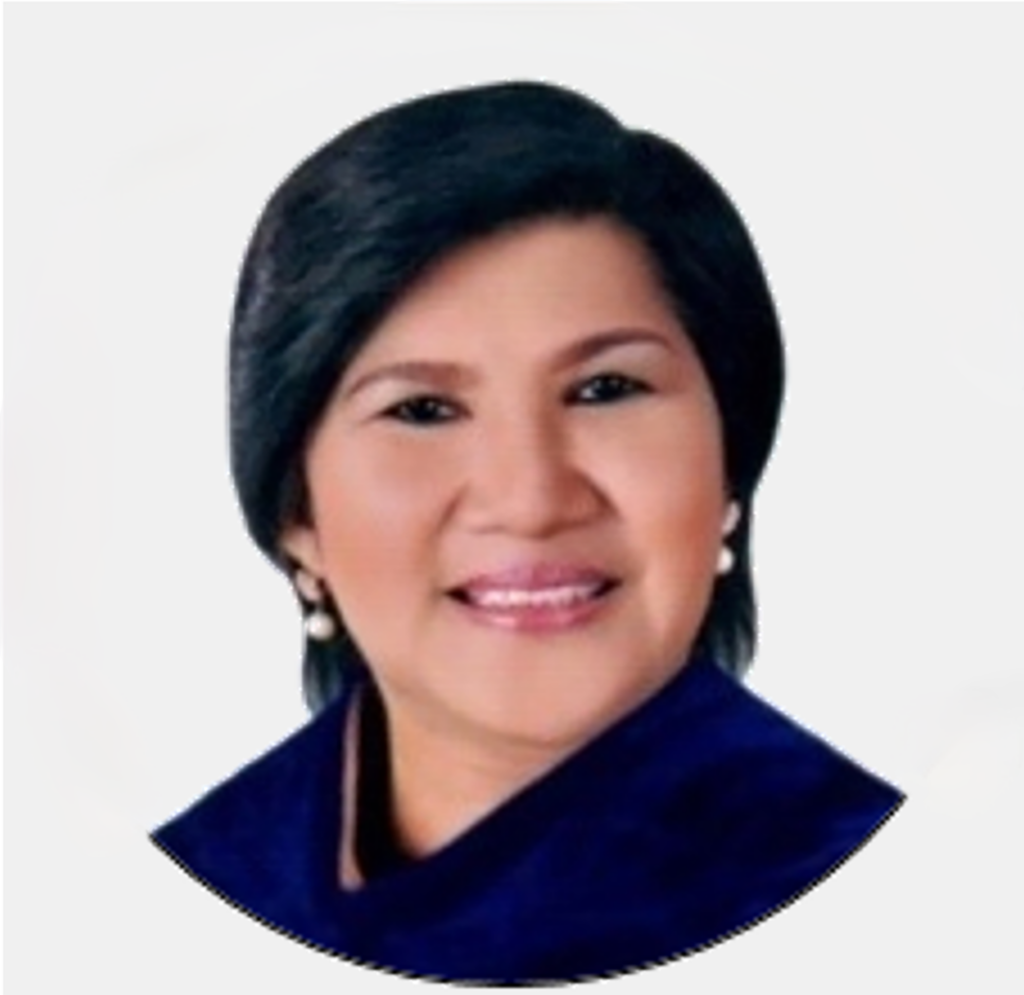
Photo: © Private
Prof Dr Flordeliza Anastacio
Vice President, Centro Escolar University (CEU), Philippines
Prof Dr Maria Flordeliza L. Anastacio is the Vice President and Dean of Studies of Centro Escolar University Malolos after her long stint as Dean of the School of Accountancy and Management of CEU Manila. She was the former National President of the Philippine Society for Educational Research and Evaluation and the Philippine Council of Deans and Educators of Business. At present, she is the President of the International Academy of Accountants for Business, Research and Education. She earned her MBA, PhD and Post Doctoral Degree in Total Quality Management in CEU Manila. She is an active accreditor of the Philippine Association of College & Universities – Commission on Accreditation and an evaluator and assessor of the Commission on Higher Education (CHED) and other quality assurance agencies, and an expert /consultant of the Department of Education K to 12 programs. Dr Anastacio was one of the first four Filipino scholars to take the DAAD DIES International Deans Course in Germany and one of the three Regional Experts Mentors of DAAD – DIES International Deans’ Course Southeast Asia.
Keynote
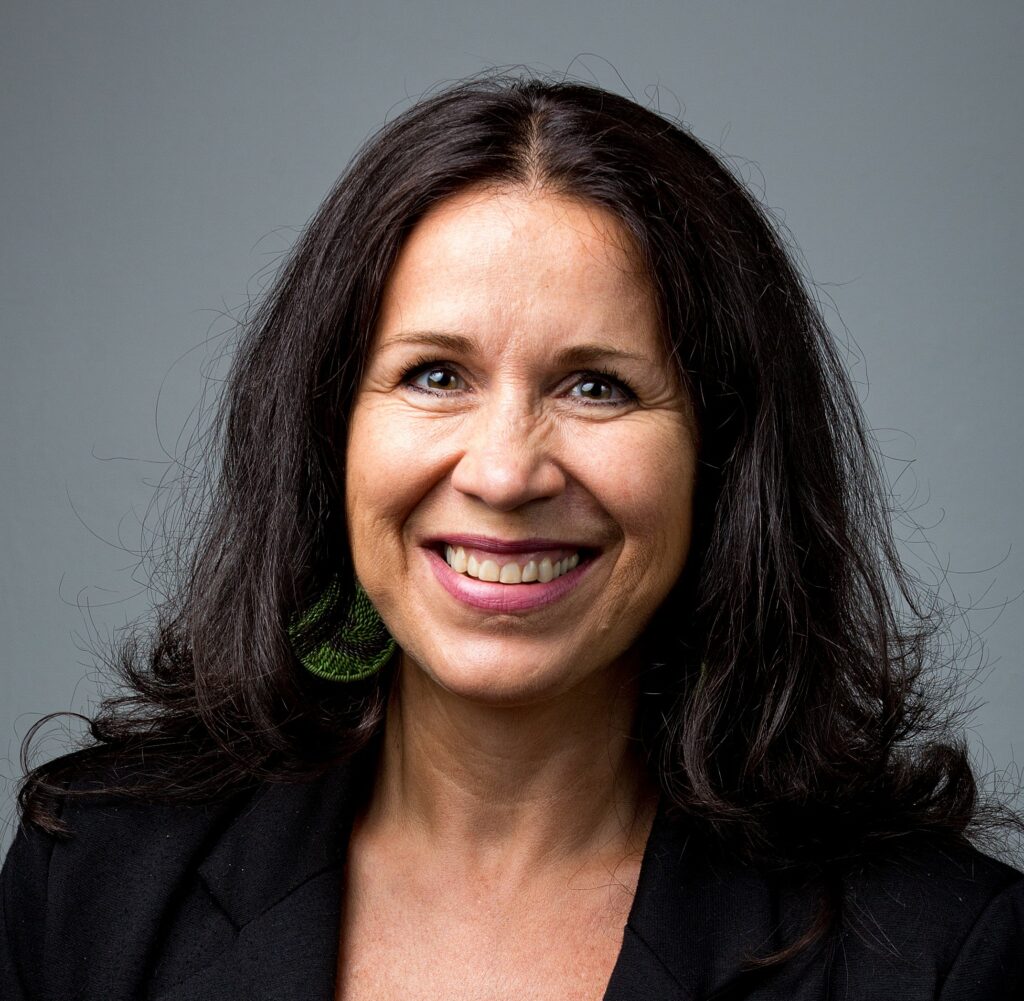
Photo: © Private
Prof Dr Birgit Schreiber
Vice President, International Association of Student Affairs and Services (IASAS), Belgium
Birgit Schreiber, PhD, is a consulting expert for the international higher education sector, has served in senior leadership positions, with expertise Sub-Saharan Africa and European higher education. Birgit has worked with a range of national and trans-national bodies, teaches, does research, supervision, program design and policy evaluation. Birgit has over 90 publications and was the founding editor and is editorial executive of the Journal for Student Affairs in Africa (JSAA), on the board of the Journal of College Student Development (JCSD) and Column Editor for the Journal of College and Character (JCC). After being the Africa Chair, she is Vice-President of the International Association of Student Affairs and Services (IASAS). She is a member of the Africa Centre for Transregional Research at the Albert Ludwig University Freiburg, Germany, and sits on the board of the South African National Resource Centre at the University of Johannesburg.
Panel Speaker Dialogue Round:
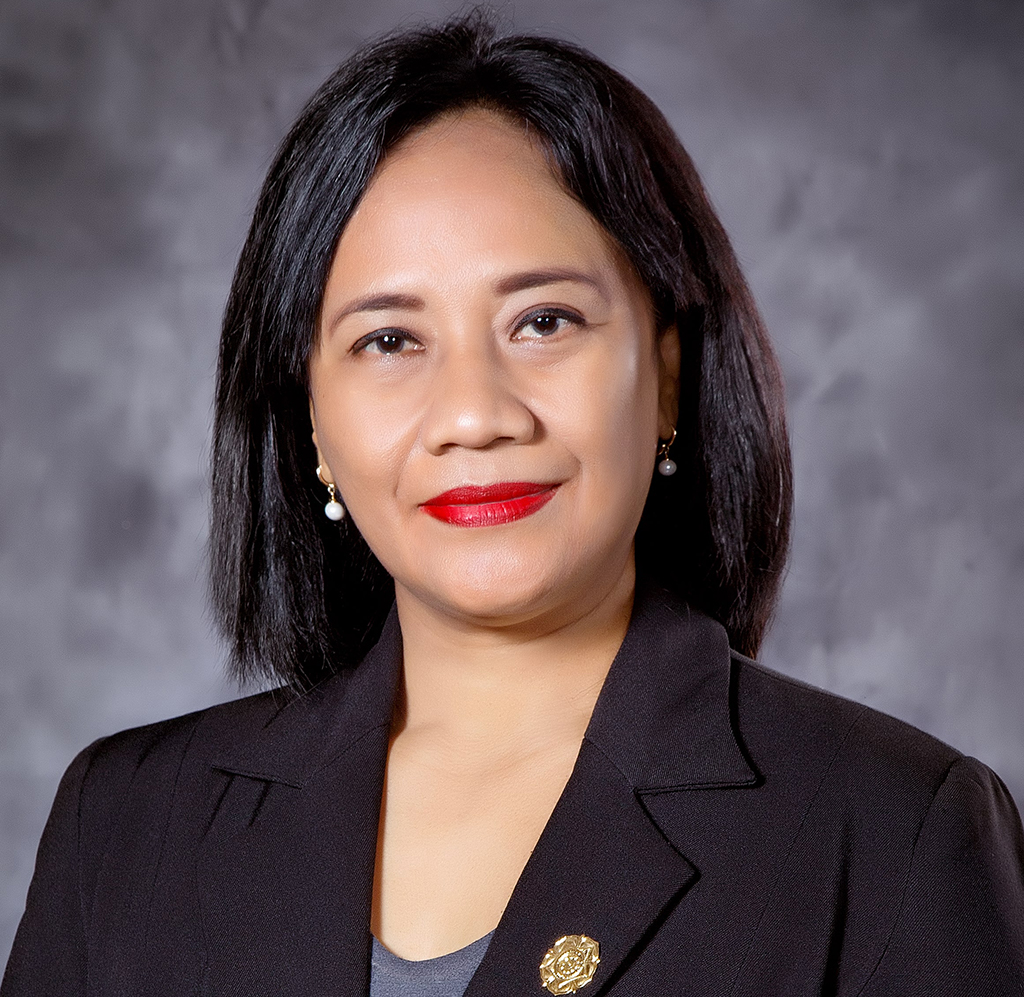
Photo: © Kencana Photography
Prof Dr Wening Udasmoro
Vice Rector for Education and Learning,
Universitas Gadjah Mada (UGM), Indonesia
Wening Udasmoro is Professor of Literature and Gender at Universitas Gadjah Mada (UGM) in Indonesia. She received her PhD in Gender Studies from the University of Geneva, Switzerland in 2006. She obtained her Master’s degree in the same field from the same university. She is the Vice Rector of Education and Learning of UGM. She was the Dean of the Faculty of Cultural Sciences of UGM (2016-2021), the Vice Dean of Acedemic and Student Affaires at the same faculty (2012-2016) and the Associate Director of Indonesian Consortium for Religious Studies (2009-2012). Her main research interests are literature, gender issues, violence, identity politics, and critical discourse analysis. Here are her recent articles published: Masculinities in Literary Works in Indonesia’s Post Conflict Ambon Island, in Kritika Kultura (2023), The Preservation of the Javanese Language in the Special Region of Yogyakarta, in Indonesian Journal of Geography (2023), Gendered Dynamics of Labour Force Participation in Insurgency and Ethno-Religious Conflict: The Cases of Aceh and Ambon in International Feminist Journal of Politics (2022), Indonesian Pencak Silat, a book chapter for UNESCO (2022), The Transformation of Social Imaginary on Women Sexuality in Indonesian Literature from New Order to Reformasi Era (Journal of International Women Studies, 2022).
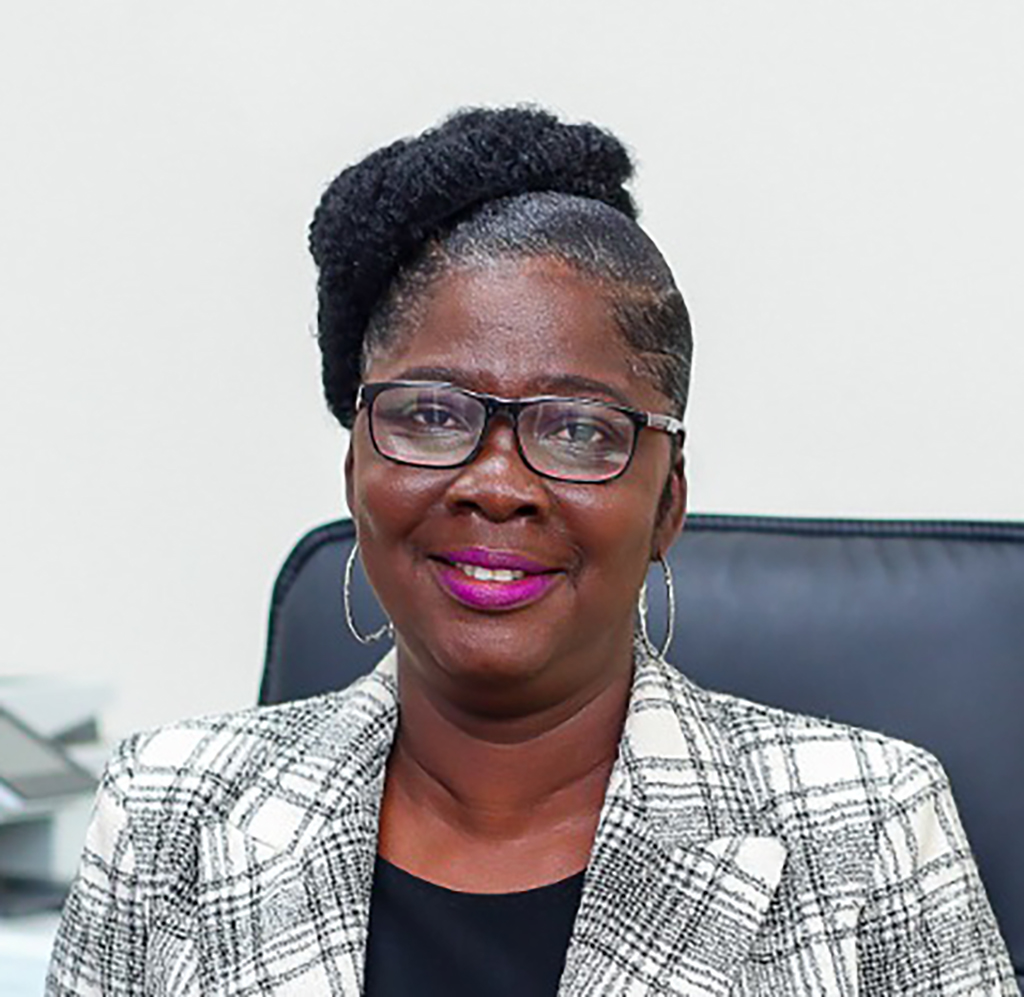
Photo: © Private
Prof Dr Rosemond Boohene
Pro-Vice Chancellor,
University of Cape Coast (UCC), Ghana
Prof Rosemond Boohene is the Pro Vice-Chancellor of the University of Cape Coast and Professor of Entrepreneurship and Small Enterprise Development. She has 25 year’s experience in higher education and has managed projects for the European Union (EU), the German Academic Exchange Service (DAAD), the German Federal Ministry for Economic Cooperation and Development (BMZ) and the United Nations Environmental programme (UNEP). She also led a team to establishment the Centre for Entrepreneurship and Small Enterprise Development and the Design Thinking and Innovation Hub at the University of Cape Coast. Prof. Boohene has presented at conferences and facilitated various workshops on entrepreneurship, small enterprise development, entrepreneurial universities, industry-academia engagement and resource mobilization in higher education.
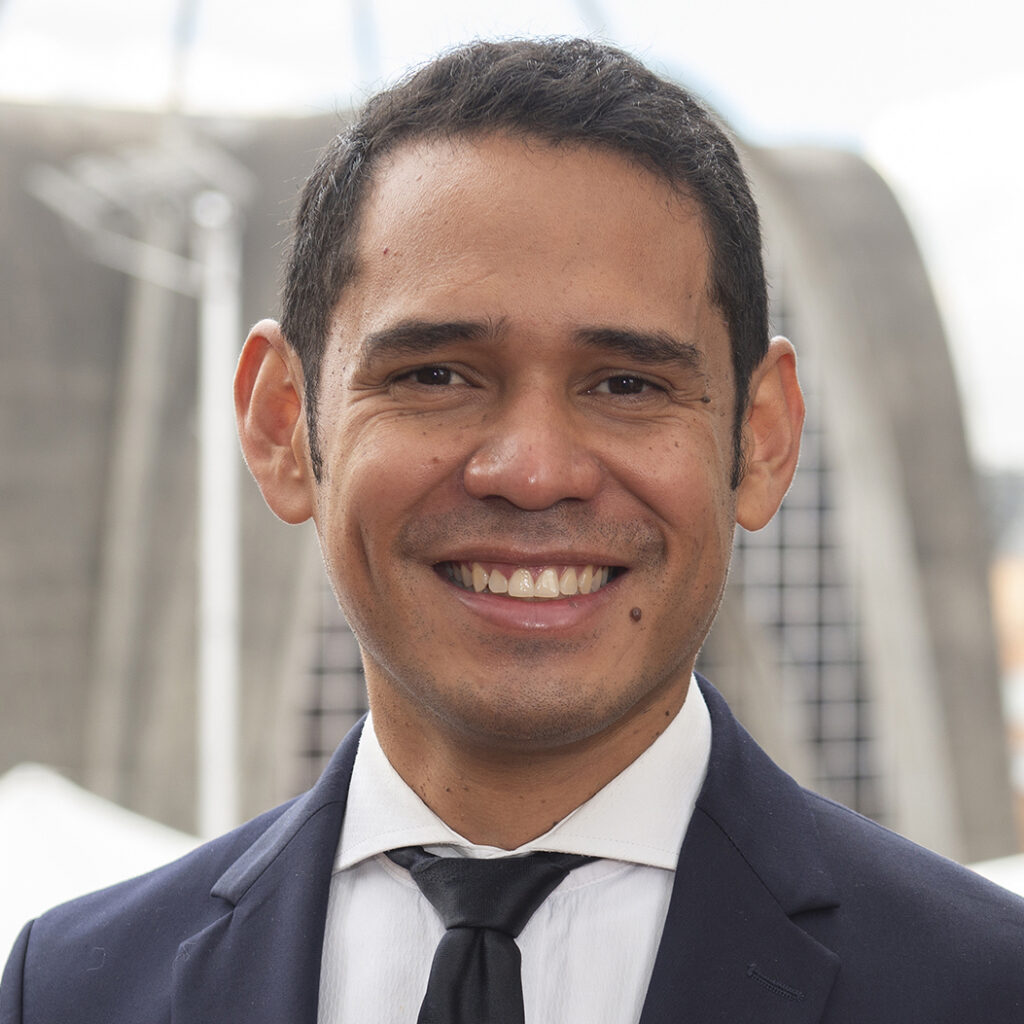
Photo: © Private
Libardo Andrés Gutierrez Mengual
Director of International Relations and Interinstitutional Affairs (DRII), Universidad de La Salle, Colombia
Libardo holds a bachelor degree in Government and International Relations, he also hold postgraduate study (specialization) in Social and Economic Evaluation of Projects and a master’s degree in Community Development and Leadership. Libardo has more than eleven years of experience in the sector of internationalization of Higher Education, academic management, science, technology and innovation policies. Libardo is the Director of International and Institutional Affairs, he is responsible for accompanying and reporting to the University Provost on the policy and strategic actions for the internationalization of the University, such as planning and developing international academic initiatives with vice-chancellors and deans ; lead the coordination of Global Mobility (incoming and outgoing mobility), Global Initiatives (international cooperation), and Strategic Relations (communication and engagement with external allies); identify and promote negotiations of general and specific agreements (mobility exchange, visiting professors and research fellows, organization of events, etc.).
Hosts:
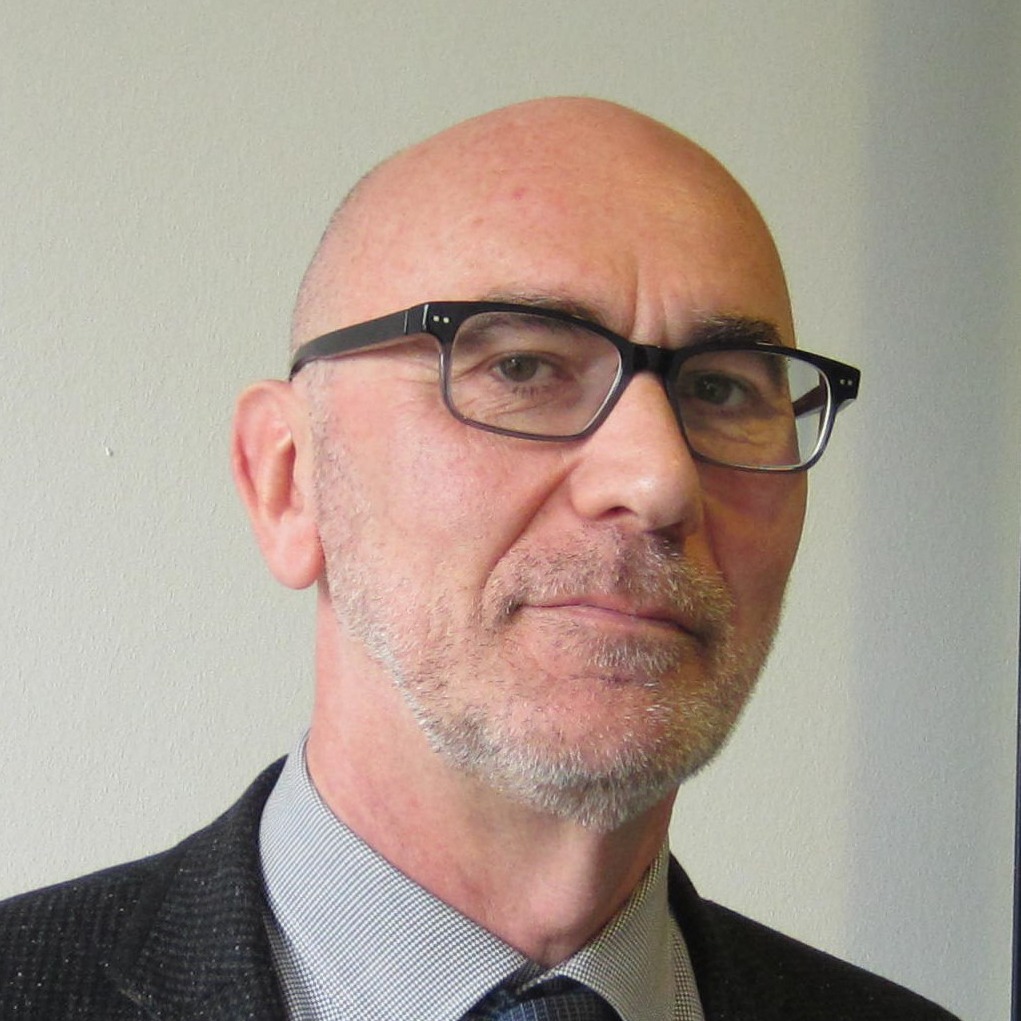
Photo: © Private
Thomas Böhm
Head of Section, Africa and Middle East,
International Students and Recognition,
German Rectors’ Conference (HRK)
Before joining the German Rectors’ Conference he was head of the DAAD (German Academic Exchange Service)-Information Center for the Gulf Region in Abu Dhabi, UAE and director of the German Center at the German University in Cairo (GUC), Egypt.
Thomas Böhm holds a Master Degree in Political and Islamic Sciences from Freie Universität Berlin, Germany.
He has also studied at Ain Shams University in Cairo, Egypt and German as a Foreign Language at University of Kassel, Germany.

Photo: © Private
Tobias Wolf
Head of Section, Development Cooperation (P32),
German Academic Exchange Service (DAAD)
Tobias Wolf, M.A. is Head of Section for Development Cooperation: Partnership Programmes, Alumni Projects and Higher Education Management at the German Academic Exchange Service (DAAD). In this role, he is responsible for the overall coordination of the programme “Dialogue on Innovative Higher Education Strategies (DIES)” funded by the German Federal Ministry for Economic Cooperation and Development (BMZ).
With training courses, dialogue events and regional sustainability activities, the programme offers a bundle of measures with which higher education institutions in the Global South can align their education programmes with international quality standards, expand their research capacities, develop their organisational structures competitively and strengthen the competencies of their university leaders. DIES offers training courses, dialogue events and regional sustainability activities that enable universities in the Global South to align their education programmes with international quality standards, expand their research capacities, develop their organisational structures competitively and strengthen the competencies of their university leaders.
In addition, he has been involved in the implementation of several EU-funded projects dealing with quality assurance and harmonisation processes in higher education in countries of the Global South.
Tobias Wolf joined the DAAD in 2002, initially working at the National Agency for EU Higher Education Cooperation. He holds a Magister Artium in Spanish and Latin American Studies, Literature and Sociology from Bielefeld University, Germany. Tobias Wolf spent one year of his studies at the University of Cádiz, Spain.
Programme
"Dialogue on Innovative Higher Education Strategies" (DIES)
Universities throughout the world are operating in an increasingly dynamic environment characterised by global challenges. They face intense competition for students, highly qualified researchers and third-party funding. This holds true for developing countries too, where the demand for tertiary education has been skyrocketing over the last decades.
In light of these developments, higher education management in all its particulars is becoming more and more important in the field of international development cooperation. The programme “Dialogue on Innovative Higher Education Strategies” (DIES) has been jointly developed and coordinated by the German Academic Exchange Service (DAAD) and the German Rectors’ Conference (HRK) since 2001. DIES is strengthening capacities in higher education management, both on individual and institutional level. It offers a wide range of tailored activities training courses, dialogue events and university partnerships. – These activities not only foster the competences of academic staff, but also contribute to the enhancement of institutional management at universities in developing countries. DIES focuses on three key partner regions: Africa, Spanish-speaking Latin America and Southeast Asia. Funding is provided by the German Ministry for Economic Cooperation and Development (BMZ).
German Academic Exchange Service (DAAD)
The DAAD is a joint organisation of German institutions of higher education and their student bodies, devoted to internationalising the academic and scientific research system. With its broad range of scholarship programmes, the DAAD enables students, researchers and university lecturers to take advantage of the best study and research opportunities. Since it was founded in 1925, more than 2.5 million scholars in Germany and abroad have received DAAD funding. Apart from the scholar ship programmes the DAAD supports the internationalisation of German universities, promotes German studies and the German language abroad, advises decision makers on matters of cultural, education and development policy and assists developing countries in establishing effective universities by means of special programmes.
German Rectors’ Conference (HRK)
The German Rectors’ Conference (HRK) is the association of state and state-recognised universities in Germany. The HRK currently has 269 member institutions, in which over 90 per cent of all students in Germany are enrolled. The HRK functions as the voice of the universities in dialogue with politicians and the public and as the central forum for opinion-forming in the higher education sector. The HRK cooperates with universities and corresponding organisations all over the world. Its aim is to represent the interest of German universities at an international level and to support German universities in their internationalisation process.
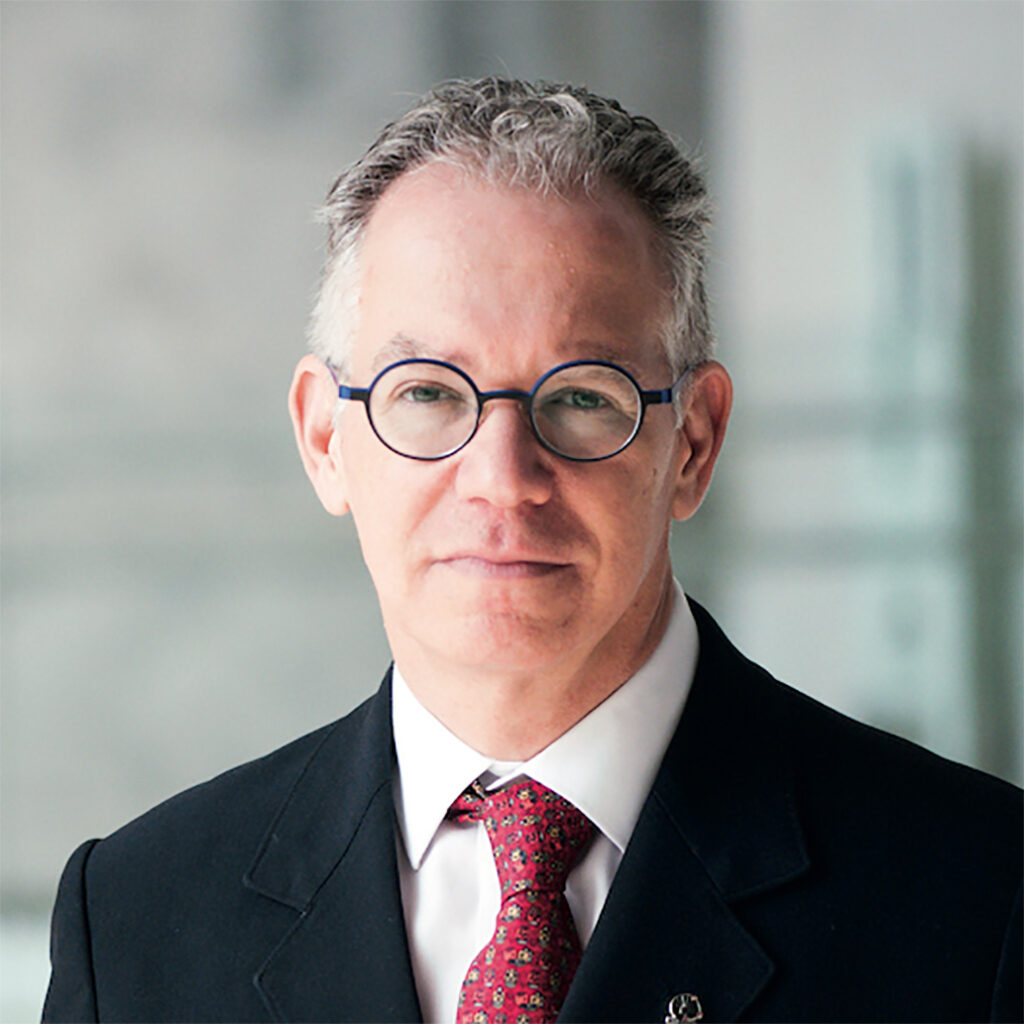
Photo: © Private
Prof Dr Marcelo Knobel
Former Rector, University of Campinas (Unicamp), Member of the governing council of the Magna Charta Observatory, Brazil
Prof Dr Marcelo Knobel was the 12th Rector of the University of Campinas (Unicamp), in Brazil, where he is a Full Professor of Physics. He held other leadership roles, including: Executive Director of the Unicamp Exploratory Science Museum, Vice-Rector for Undergraduate Programs, Vice-President of the Brazilian Physics Society and Executive Director of the Brazilian Nanotechnology National Laboratory (LNNano). He has already published more than 300 scientific papers, in addition to numerous opinion pieces in both national and international newspapers and magazines. Prof Knobel is the editor-in-chief of the Journal of Magnetism and Magnetic Materials (Elsevier). He is an Eisenhower Fellow (2007), Fellow of the John Simon Guggenheim Memorial Foundation (2009) and Lemann Fellow (2015). He is Member of the Governing Council of the Magna Charta Observatory.
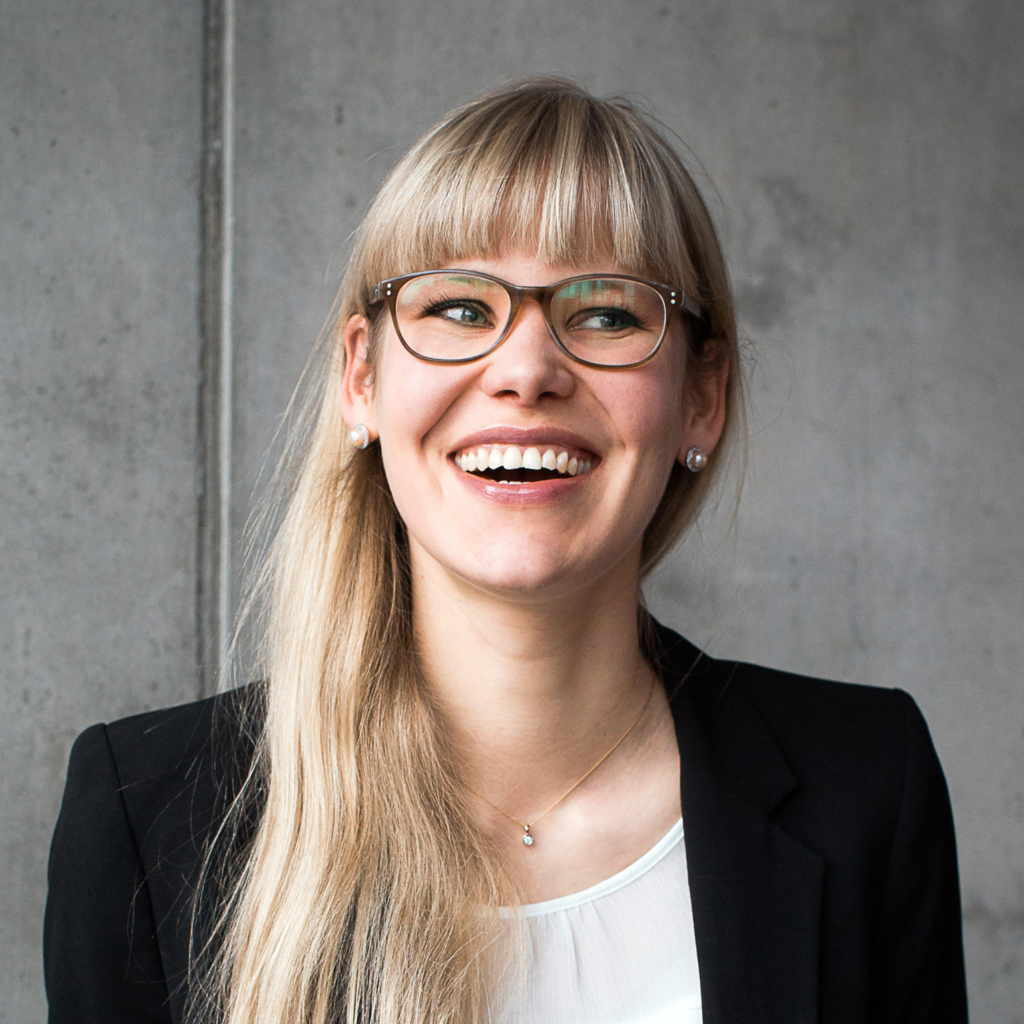
Photo: © Jens Gyarmaty
Prof Dr Eva Asselmann
Professor, Faculty of Health, Health and Medical University, Germany
Prof Dr Eva Asselmann is a Professor of Differential and Personality Psychology in Potsdam. Her research focuses on personality development, health promotion, and prevention. In particular, she examines how personality and mental health change before and after becoming a leader. Her research revealed that emergent leaders experience substantial changes in personality traits (e.g., extraversion and risk affinity) as well as both favorable and unfavorable changes in subjective well-being. Moreover she develops targeted trainings and has many years of practical experience in consulting and coaching for individuals and larger organizations. She is certified in Systemic Coaching, Change Management, and Acceptance and Commitment Therapy. In 2022, she published her popular science book “What We Grow From” to disseminate her latest research findings on personality development around major life events.
